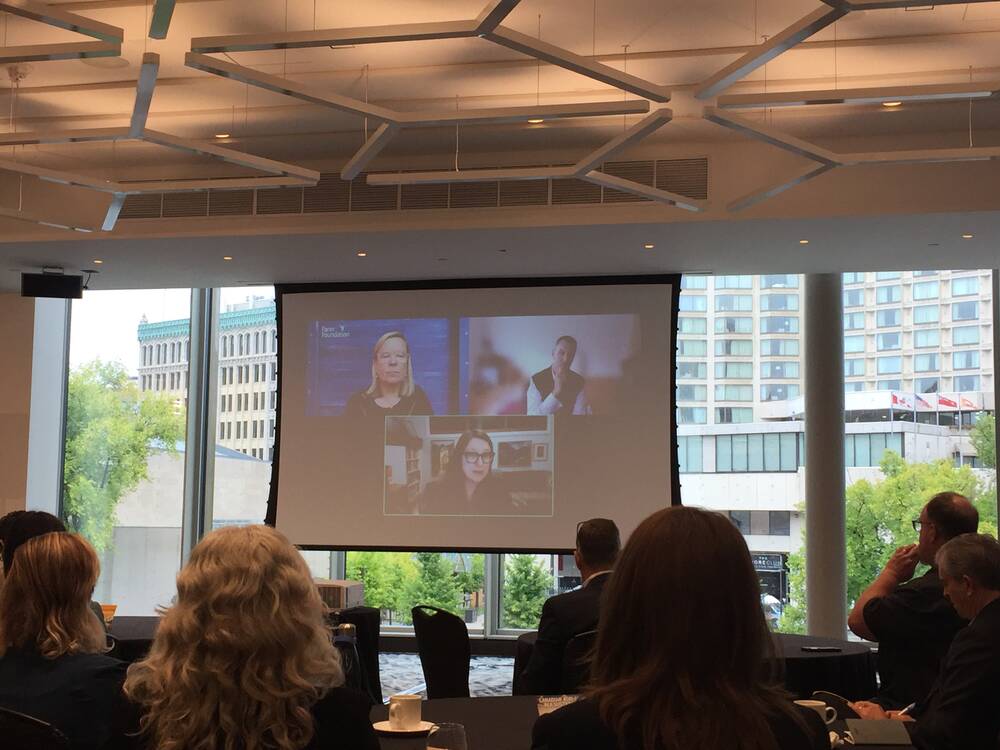What sustainability lessons can Canada learn from abroad?

Panelists at the Canadian Agri-Food Policy Institute (CAPI) Canadian Agri-Food in a Sustainable World conference offered international perspectives on sustainability in the ag industry.
At an Oct. 2 panel titled Sustainable Agriculture and the World- Global Perspectives, guests from Australia, the United States, European Union and Latin America spoke about their experiences with sustainable agriculture goals and policy.
Why it matters: With changes like SCAP implementation and a federal election on the horizon for Canada, international markets can offer perspective on the future of ag.
Read Also

U.S. Grains: Soybeans ease on South American rain outlook; grain higher
Soybean futures eased on Monday on forecasts for rain in dry areas of top exporter Brazil and Argentina and on rising United States supplies as clear Midwest weather boosted harvesting.
Katie McRobert, Executive Director of the Australian Farm Institute (AFI) opened by speaking about how sustainability initiatives can sometimes cause barriers in an export-driven market.
“Australian agriculture is very export focused,” McRobert said, “and we export more than 70 per cent of the value of what we produce in Australia.”
She explained that the scale of production is a cornerstone of food security, both in Australia and in the import markets dependant on Australian goods. She said this should be considered when drafting changes or legislation.
“It’s important to us to make sure that when we’re talking about sustainability measures, they are ones that are enabling of the trade environment, that are accepting of the way that we produce food differently.”
In 2022, Australia was the world’s largest exporter of wheat, at 28.8 million tonnes. They also rank in the top 10 in the export of beef and dairy.
McRobert said that this tension between export considerations and sustainability goals has made it difficult to create ag legislation.
“In Australia, nobody wants to regulate agriculture,” she said. “But we’re getting to a point where perhaps these more uncomfortable discussions need to happen.”
Like Australia, Canada’s agri-food output is considerable, having exported C$99.1 billion in agriculture and food products in 2023,.
Shari Rogge-Fidler, President & CEO of Farm Foundation, a non-partisan organization focused on improving economic conditions for U.S. farmers spoke to the role external politics can play in sustainability efforts.
“I need to … name the elephant in the room,” she said. “When I think of collision course, I think of the politics of both trade and sustainability in the U.S., particularly right now, with the election going on.”
“So, as I look ahead, I think that is a key challenge, maybe just a few months from now, we’ll have a better view on how significant those headwinds are.”
Though the US election will take place in November of this year, Canada’s own federal election is set to follow not long after, in fall 2025.
Rogge-Fidler identified two factors which have been key to innovation from her perspective: soil health and precision ag technology.
Another insight from Rogge-Fidler was that it will likely be consumer-facing sectors leading the way on sustainability efforts.
“How do these innovations lead to global benchmarks?” She said. “Often, they don’t. It’s not as linked to the consumer-facing market.”
“When it comes to animal ag, like dairy, that link is much clearer for consumers, and there we are seeing more significant change.”
Mark Titterington, Co-Founder and Director of the Forum for the Future of Agriculture (FFA) said he has found that many academics and private sector players are finding sustainability solutions. He said this is something of which governments should be paying closer attention.
“My feeling on this, whether it’s in the EU or anywhere else, the government’s thing to focus on is enablement,” he said.
U.S. Soybean Export Council (USSEC) Regional Director Carlos Salinas spoke about expanding growing operations and the challenges of markets where expansion can have major environmental impacts.
“We’re producing more per acre, more per hectare, which is great news, but we have also expanded hectares, right?”
He said that while there have been discussions of reforestation in North America, deforestation for agricultural purposes remains a sensitive topic in other parts of the world.
“I think that for the farmers around the world, we’re not in an even keel. I think the outcomes and the outputs are different, and we can see the results.”
Several of the panelists gave the advice to remain practical and realistic in setting sustainable ag goals. Salinas said many countries in Latin America will create goals with good intentions but little regard for the impact on farmers.
In similar veins, McRobert suggested engaging in conversations with compromises on decarbonization and Rogge-Fidler said engaging producers directly to define sustainable measurements would be key.
Source: Farmtario.com

